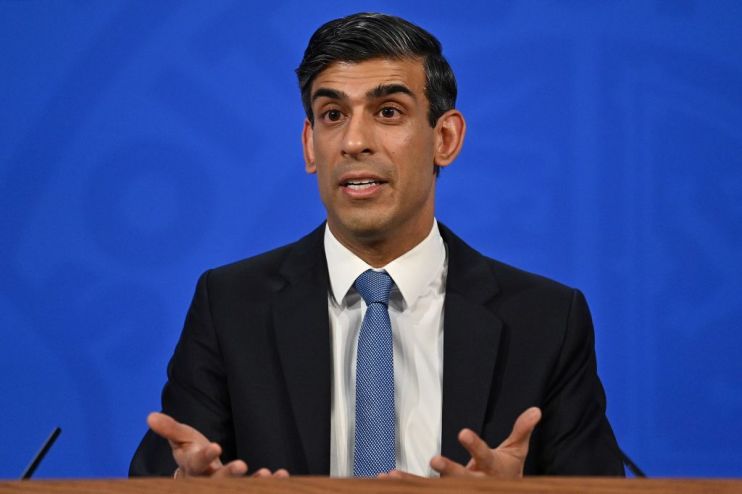Russia-Ukraine war to take tax cuts off the table, IFS warns

Even higher inflation triggered by Russia invading Ukraine will take promised tax cuts off the table, a leading think tank warned today.
Surging energy prices driven by concerns over the security of oil and gas supplies amid a ramping up in tensions between Moscow and the West will eat into Chancellor Rishi Sunak’s room to deliver on lowering taxes in the run up to the next election, according to the Institute for Fiscal Studies (IFS).
The government’s interest bill will balloon over £30bn by next year.
Higher spending on paying holders of UK debt will add pressure to the already battered public finances, limiting Sunak’s ability to cut taxes if government expenditure remains on the current trajectory.
Under the government’s existing fiscal plans, the tax burden will swell to its highest level since the 1950s and spending will increase to levels last seen 50 years ago.
A large proportion of the UK’s stock of debt rises in line with the retail price index (RPI), an old measure of the cost of living.
The RPI has already scaled to 7.8 per cent, the highest rate since 1991, leading to a record interest bill for a January of £6.1bn, according to the Office for National Statistics.
Even before the war, Brits were already bracing for one of the worst falls in living standards in peacetime, prompting experts to rein in expectations for economic growth this year over fears households will cut spending.
However, the cost of living squeeze is set to tighten, with the IFS calculating soaring oil and gas prices caused by the Russia-Ukraine conflict may hit households to the tune of £43bn.
Sunak’s decision about whether to allocate more spending to cushion the blow to households or rein in expenditure at the spring statement on 23 March will reveal his true preferences for the role of the state in society, Paul Johnson, director at the IFS, said.
“At the Spring Statement Rishi Sunak has to make a huge judgment call. Will he do more to protect households from the effects of energy prices which have risen even further in the last two weeks?” Johnson said.
“If he doesn’t then many on moderate incomes will face the biggest hit to their living standards since at least the financial crisis. If he does, then there will be another big hit to the public finances,” he added.
Natural gas – which is used to power homes across Britain – prices reached a record high of £8 per therm this week over fears Russian President Vladirmir Putin could hit back at Western sanctions by turning off flows to Europe.
Oil prices have also surged to levels not seen since 2008, but retreated yesterday.
Experts at consultancy RSM said this week the energy watchdog could hike the price cap a further 75 per cent in October to account for higher energy prices, sending inflation to as high as nine per cent.